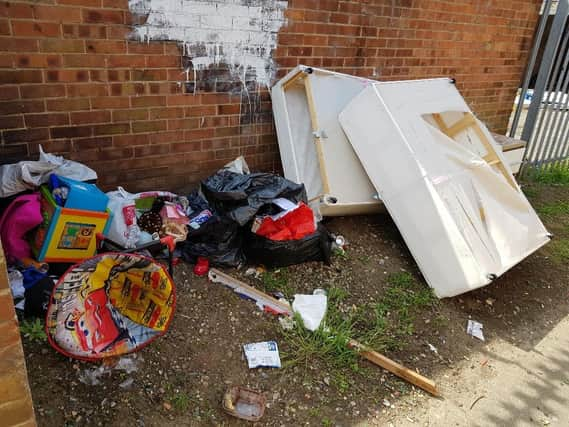Fly-tipping costs Hartlepool more than £1m in the last five years - and it is on the rise


Hartlepool Borough Council officers said they recorded 2,107 incidents of fly-tipping in 2019, and the number for January to September 2020 has already exceeded this, with 2,593 reports.
Almost 740 tonnes of fly-tipping was removed in the borough last year, with a further 505 tonnes removed between April to September 2020, 49% higher than the same period last year.
Advertisement
Hide AdAdvertisement
Hide AdOfficers also reported the estimated cost of clearing fly-tipping in 2019/20 was £233,000 and over the past five years is more than £1.1 million.
A report going before the neighbourhood services committee next week will outline how the council plans to crackdown on fly-tipping.
Measures will include looking to close off access to fly-tipping hotspots in the borough, launching a publicity campaign, using CCTV to attempt to capture those responsible and taking out enforcement action.
A working group is also to be established, involving partners from all sectors, including local litter picking initiatives, to consider how fly-tipping can be tackled.
Advertisement
Hide AdAdvertisement
Hide AdThe report from Sylvia Pinkney, council assistant director for regulatory services, said along with working with partners, the council must ask ‘difficult questions’ as to what leads to fly-tipping.
She said: “The significant majority of fly-tipping is household waste – ranging from black sacks to mattresses, fridges and furniture.
“The majority of fly-tipping in Hartlepool takes place in back streets.
“As the council offers free use of its waste recycling centre (the HWRC) and a bulky waste collection service (for a fee) the question must be asked why so many people choose to dump their own rubbish.
Advertisement
Hide AdAdvertisement
Hide Ad“Most fly-tipping takes place in secret where there are no witnesses. Whilst tipped waste is examined for evidence by trained officers it is not usually possible to identify a perpetrator from the waste itself.”
Officers note two of the most prolific tipping sites in the town are at West View, behind Bruntoft Avenue and behind West View Road, and both have single entry/exit points.
Therefore work is underway to establish whether access points can be closed permanently.
They also noted keeping alley gates closed may have a positive impact and reduce fly-tipping in back alleys, so additional signs and publicity are to be used to encourage communities to keep gates closed at all times.
Advertisement
Hide AdAdvertisement
Hide AdIt was noted much of the fly-tipping in Hartlepool is ‘small scale’ which happens in back streets and is not what is traditionally thought of as ‘fly-tipping’ but may be reported as such.
Council officers also noted a number of fixed penalties have been issued and notices served, relating to fly-tipping in recent years.
In total 35 fixed penalty notices for fly-tipping have been issued to date this year, which is already more than the 19 issued in 2019.
Council officers noted fines issued by the courts for fly-tipping are historically low, below £500.
Advertisement
Hide AdAdvertisement
Hide AdHowever earlier this month Hartlepool Borough Council was successful in its prosecution of a fly-tipper and he was ordered to pay a fine and costs totalling over £2,400.
The report will be discussed at the neighbourhood services committee meeting on Tuesday, December 1 at 10am, streamed live via YouTube on the ‘Hartlepool Council meeting videos’ channel.